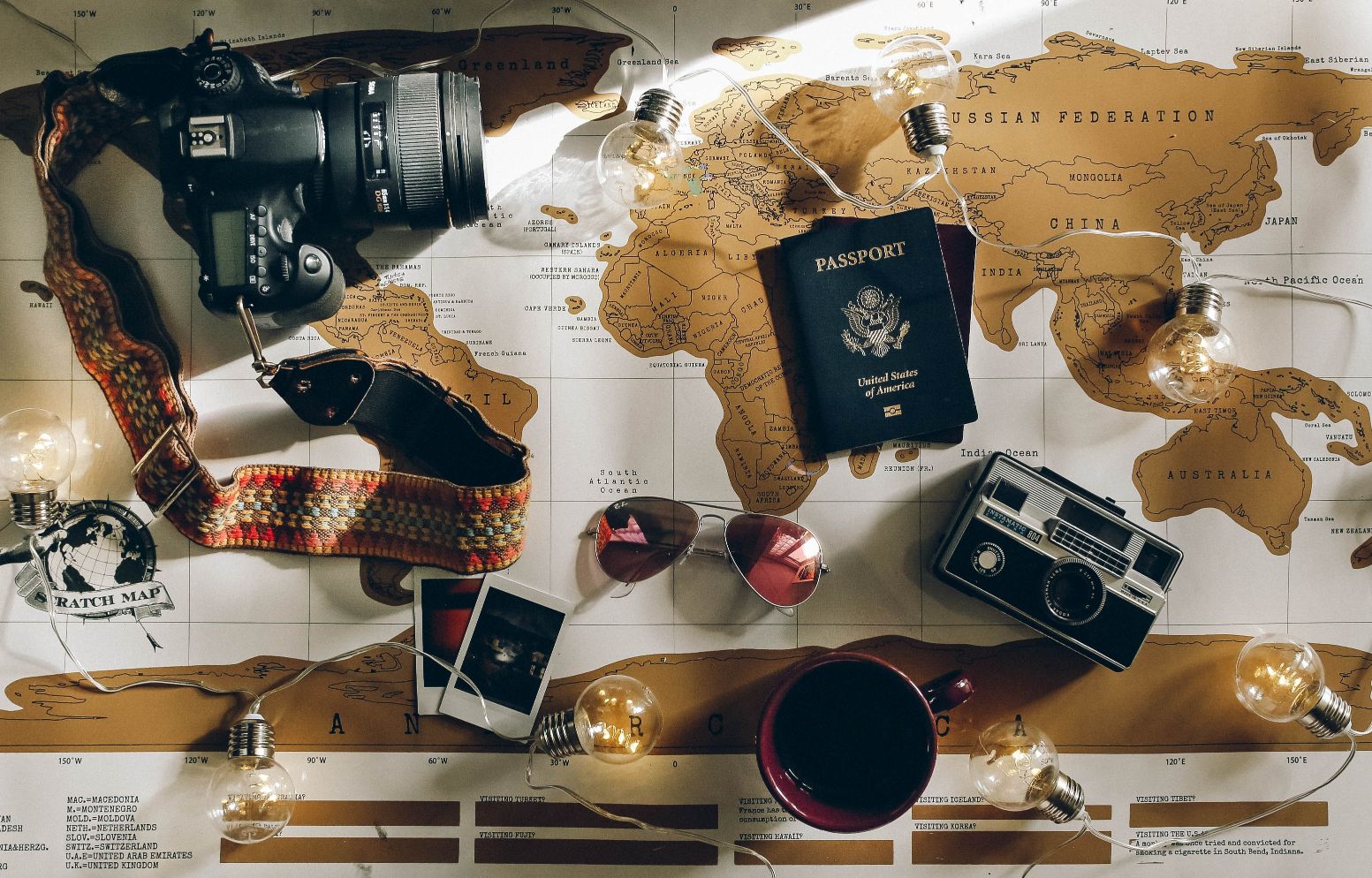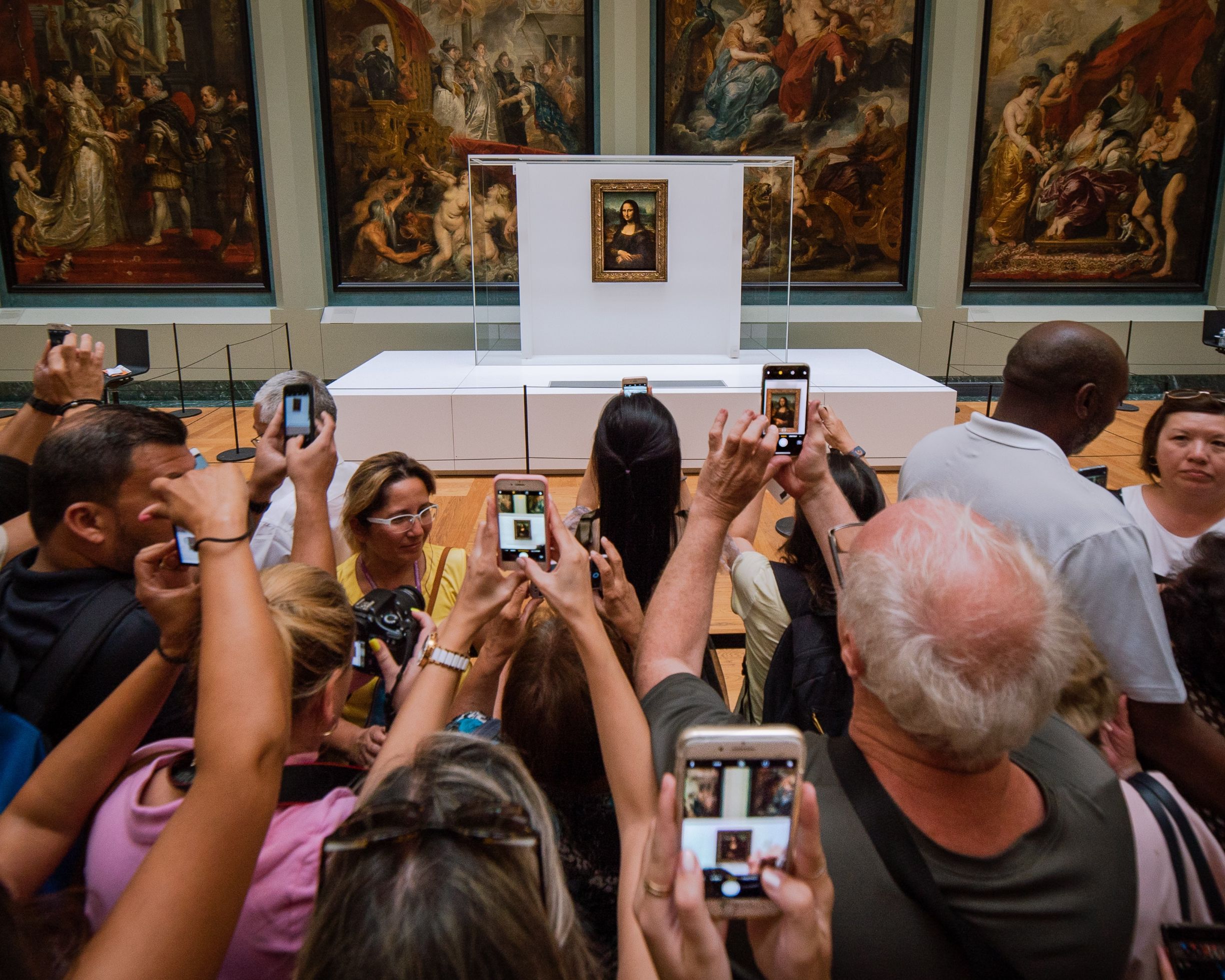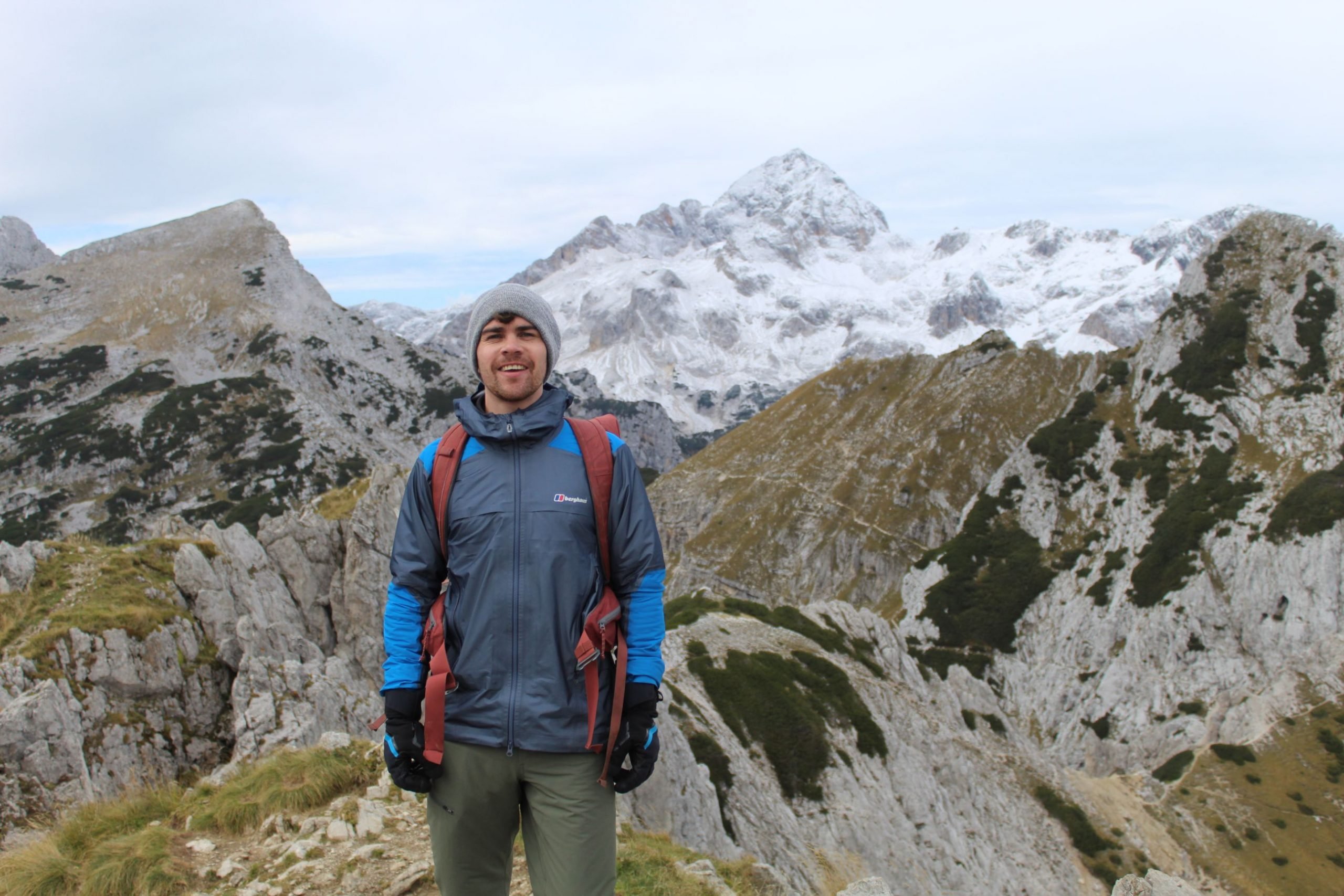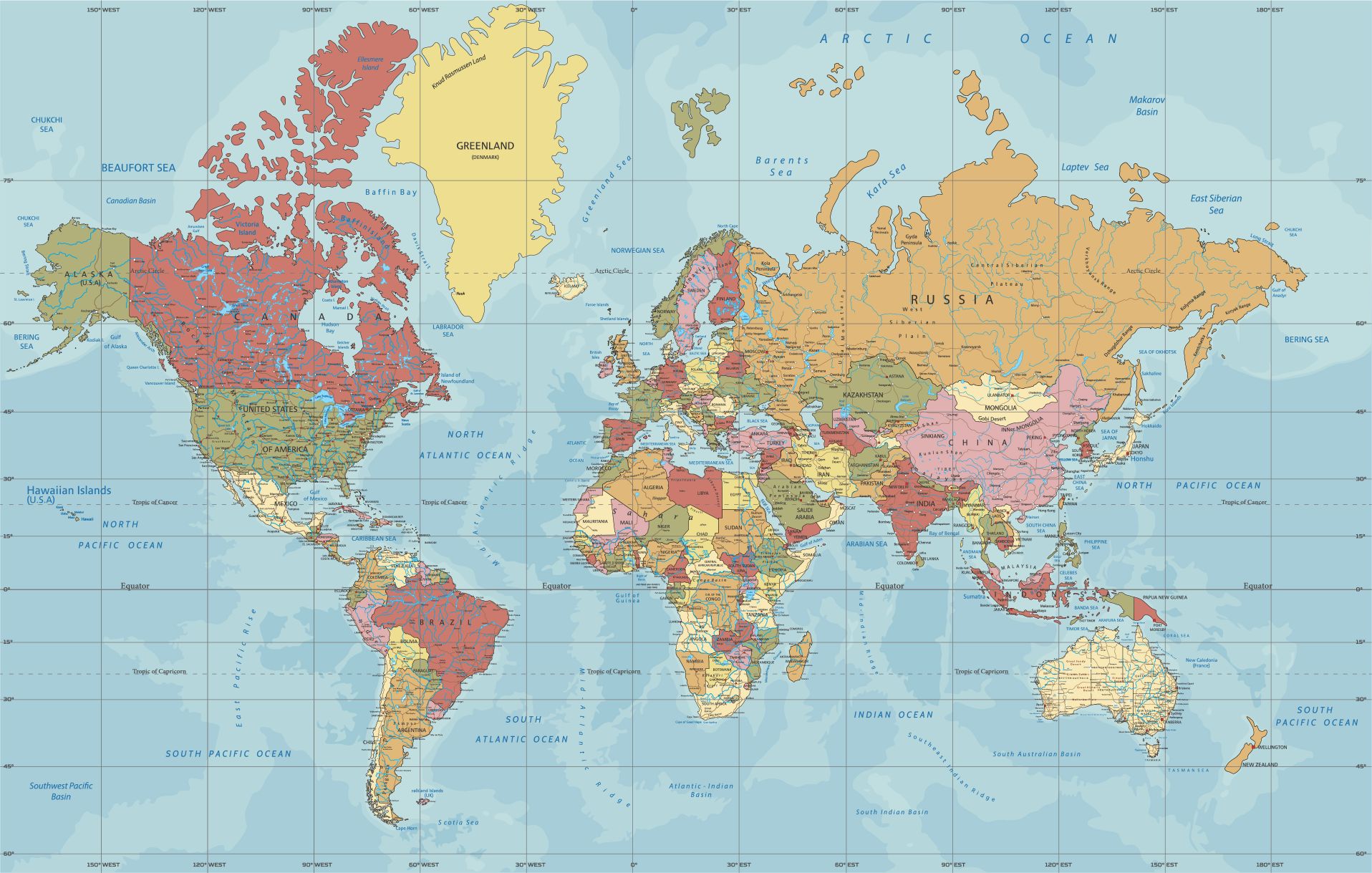
Been there, done that, got the t-shirt. Waited in an hour-long queue to get into the Louvre, stood in front of the Mona Lisa for 10 minutes and posted an Instagram snap doing a yoga pose on the way out. The world travels in mysterious ways.
Travel is going to change – like much of the world – in the post-covid universe. People will be even more wary of tourist traps than before; not just because of the prices but because of the tourists themselves, and all of their maybe-germs.
Perhaps one positive change to come from this will be that travellers will delve a little deeper into the places they visit, rather than submitting to the scratch map mentality – returning home from a weekend in Paris to scratch the entirety of the 643,801 km² nation of France off a poster hanging on their bedroom wall.
If you’ve not yet had the pleasure, a scratch map, pictured top, is a map of the world covered in gold foil. As you travel, you scratch off the places that you’ve been. It’s in the name, really. The concept is simple, quaint, and at first-glance harmless (though, I’d argue, in the same way that a selfie stick is harmless, rather than the way a month-old puppy is harmless).

You need to scratch back to 2009 for the ‘invention’ of the scratch map.
It was developed by the team at Luckies, after returning from a backpacking trip, and was no doubt very well intentioned. It certainly took off big time. Millions of scratch maps have now been sold – in large part because birthdays exist – and you can now get Scratch Globes and, oh yes, even limited edition Ed Sheeran Scratch Maps (which you scratch to reveal “cool Ed facts”).
The existence of scratch maps has long irked me. Or rather, the way they encourage people to talk about travel has irked me. Scratch maps are the embodiment of an ethos of travel that’s for show rather than discovery. They put the traveller, as opposed to the country, at the forefront of travel, and reduce communities, cities, countries and cultures to mere checkboxes.
A country cannot be ‘done’. It is not a cake.
How many times have you heard someone say they’ve “done” Berlin, or some other location, as though it is a video game to be completed and then stuck back in the cupboard or sold on second hand? A country cannot be “done”. It is not a cake. It was there, in all its beauty and complexities long before you visited it and with any luck it will be there for a long time afterwards too.
Places, urban or remote, are living, breathing, ever-changing entities which no matter how many times you visit, it is almost impossible to ever fully know. In that lies their beauty. Like Nan Shepherd said of the Cairngorms where she spent so many of her days in The Living Mountain: “Knowing another is endless. The thing to be known grows with the knowing”.
Often, it’s the strangest circumstances that make for the strongest connections with a place. I once ruptured my spleen mountain biking in Slovenia and was forced to spend a few extra weeks there recovering. I fell in love with the country and have now been back on several other occasions, exploring the separate regions; their gastronomy and diverse landscapes. If I thought I had seen all Slovenia on those first few days in the mountains, I was very wrong.

French novelist Marcel Proust once said that “the real voyage of discovery consists not in seeking new landscapes, but in having new eye.” An age-old cliché it may be, but it still rings true. The more time you spend in a place, the more you realise how much more of that place you still have to see. A scratch map is the antithesis of this fact. It encourages people to go somewhere once, proclaim they have seen it, and then ignore the rest – to go to Moscow for a week and remove Russia, which makes up 11% of the world’s landmass, from your map.
It assumes that the challenge is to visit as many countries as possible; valuing quantity over quality and depth of experience, and removing the significance of individual spots.
Maps have been built with inherent biases and for political uses for generations. The Ordnance Survey – who make Britain’s OS maps – were originally formed to map the Scottish Highlands in case of a further rebellion by Scotland after the Battle of Culloden, for example.
The Mercator Projection, commonly taught in schools, shows Greenland as the same size as Africa, when in reality Africa is 14 times bigger. Raj Patel and Jason W. Moore in their book ‘A History of the World in Seven Cheap Things’, describe the modern map as “a technology of conquest.” They comment on Gerard Mercator’s mapping as “revolutionary in fusing the new cartography with the demands of rapacious and militarized commercial expansion” and go on to say that “to conquer and cheapen global life […] one must be able to map it”.

Contemporary examples of this ‘cheapening’ can be seen in the importance of the ongoing mapping of the ocean to deep-sea mining, which journalist Laura Trethewey describes in The Guardian as “a controversial plan to excavate huge areas of underwater resources.”
Is the scratch map not another example of the “cheapening” of global life? It may not involve resources, but it reduces a country and its culture to a tick-box for commercial purposes.
Maps select what to show and what not to show, and as such, they get to decide what is of value. Analysing Brian Harley’s 1989 article ‘Deconstructing the Map’ in her book The Meaning of Travel, Dr. Emily Thomas discusses how “rather than representing reality, maps may seek to create it”. Maps have the power to instal a particular view of the world in a reader, and Scratch Maps aren’t exempt from this. They instal an egocentric view of travel, asking the traveller to treat the world like a shopping list. Even when the maps have state lines within countries, it’s still an unhelpful go-once, scratch-off mentality.
Travel to the places that invigorate you; that educate and excite you and that make you feel alive.
Scratch Maps are a product of the “fast travel” that’s risen with budget airlines and which has removed an element of open-mindedness from travel. Go wherever Ryanair flies, stay three days and see the landmarks, whether you’re interested or not. Look – if you don’t like art galleries, that’s absolutely fine, but then it’s probably not the best idea to spend a day at the Louvre and finish it off with an “overrated-overcrowded” keyboard rant on TripAdvisor.
Travel to the places that invigorate you; that educate and excite you and that make you feel alive. And if at the end of your city break you had the time of your life, don’t say you’ve “done” [insert location here]. No country is ever “done”. Any decent trip should end with the realisation you’ve only scraped the surface, and we should speak in a way that reflects that.
For quite a while now it’s been all too easy to hop on an airplane to almost anywhere in the world at the bat of an eyelid. The pandemic put a stop to that for a while. It reminded us that travel is a privilege and encouraged us to think about the deeper implications of our actions.
Perhaps one takeaway is that it’s better to travel to scratch itches, not gold-foiled maps.
Ready to travel? Have a look through our full range of adventure holidays now.

